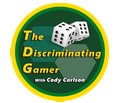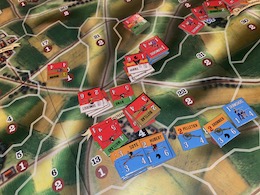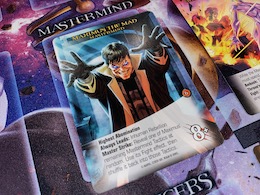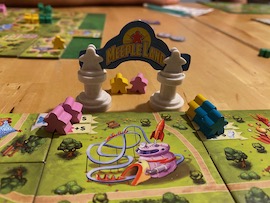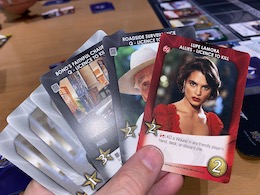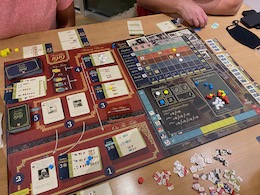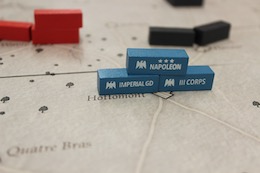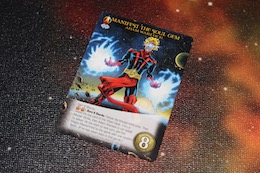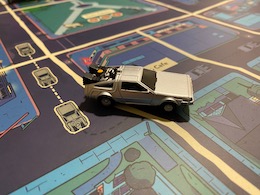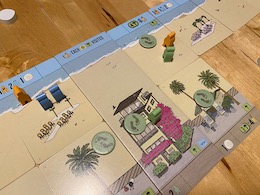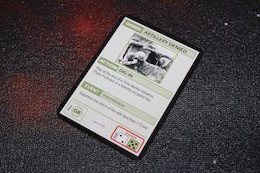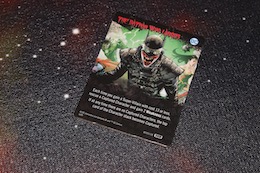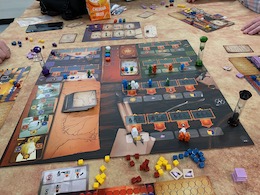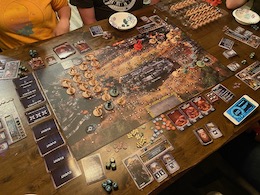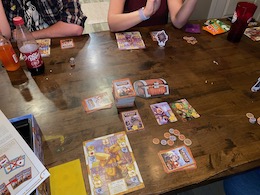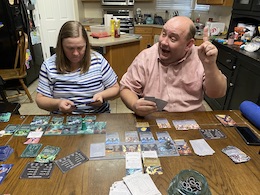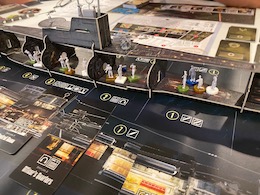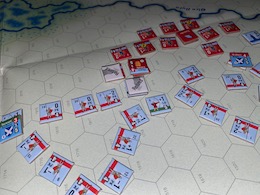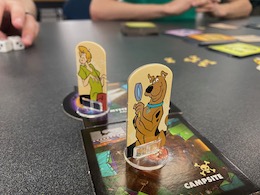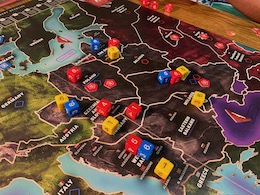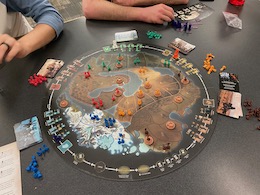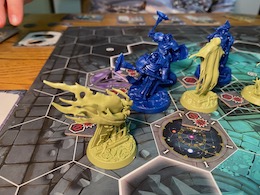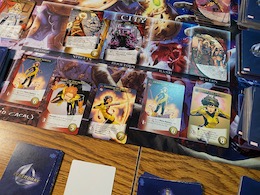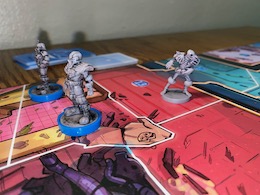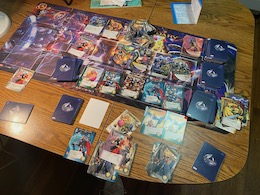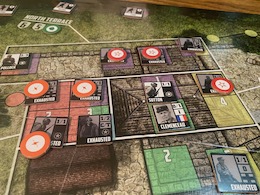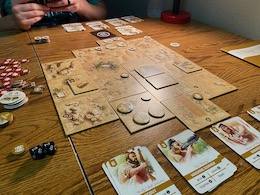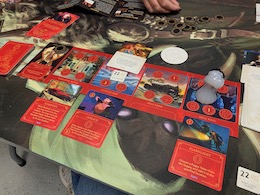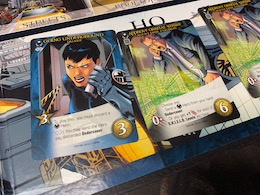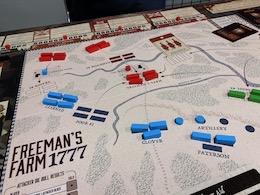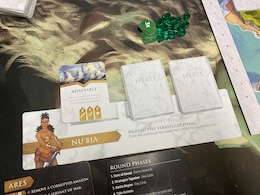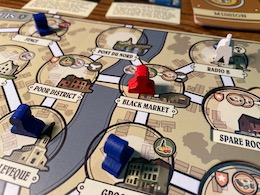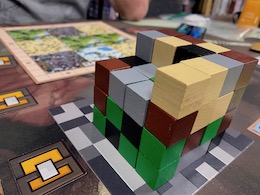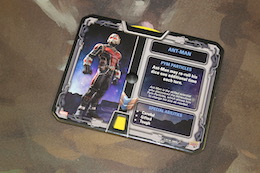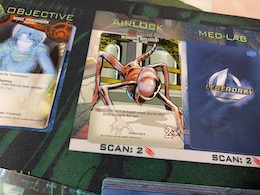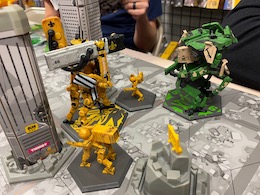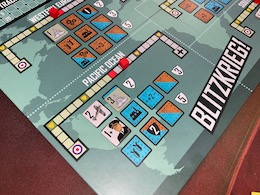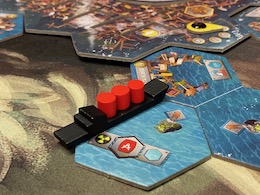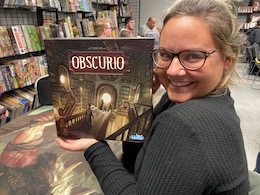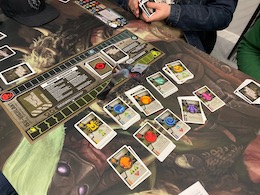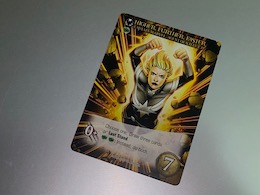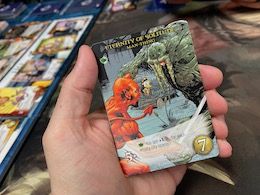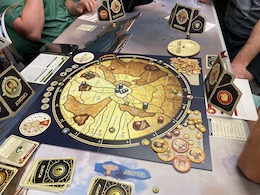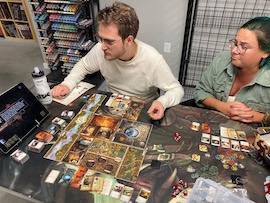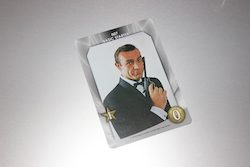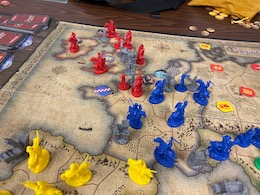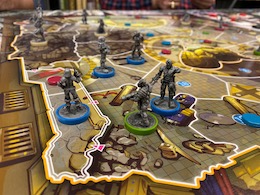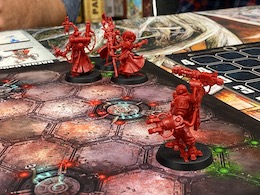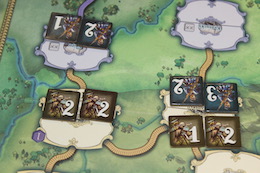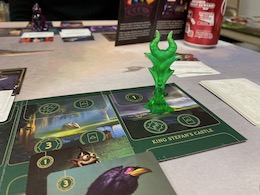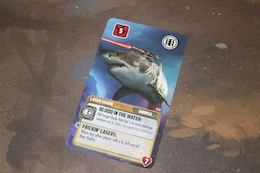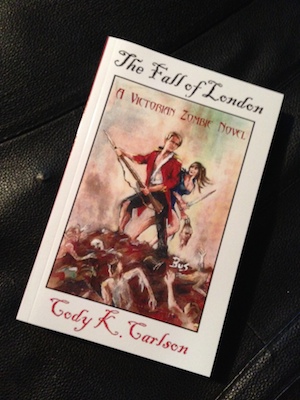Justin & Cody investigate Timeline
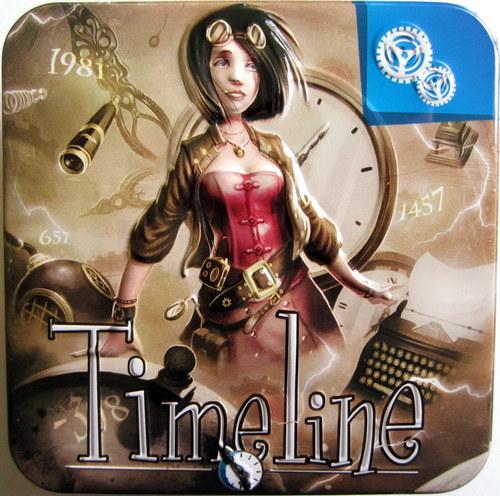
Justin: Hey Cody! Hey Cody!
Cody: What is it, Justin?
Justin: You're a professional historian, right?
Cody: That's what it says on the tattoo on my forehead.
Justin: Er... right. Say, I need your help. What came first, the invention of the Telephone, or cave paintings?
Cody: Why do you need to know this?
Justin: Well, Shawn and I are playing a game called Timeline from Asmodee, it's a game where you have to decide what stuff came before other stuff.
Cody: Like the chicken and the egg?
Justin: What? No! This isn't a game about farming. It's a game about history, about time.
Cody: Calm down. Why don't you tell me about it.
Justin: Okay, in Timeline, two to eight players attempt to construct a timeline of history. In the version we're playing, Timeline: Inventions, we're looking at when things were invented.
Cody: This sounds intriguing. Carry on.
Justin: At the beginning of the game players are dealt a number cards depending on how many players there are. On the face up side is a picture of the invention and its name. On the reverse side, which must be kept face down, is the year. Then, a card is drawn randomly from the deck and placed in the center of the table so that the year is showing. The first player picks one of his cards, and must decide if if occurred before or after the card on the table by placing it to the left or the right of that card. He then turns over his card, and if he guessed correctly the card remains where it is in the timeline. If he guessed wrong, however, he must put his card in its proper place, then draw another card from the deck.
Cody: I see, then as more players place their cards, the timeline becomes more crowded, and it becomes more difficult to guess where your card goes. Brilliant. So what is the goal of the game? How do you win?
Justin: The first player to get rid of all of his cards wins the game.
Cody: That sounds like quite possibly the easiest game to learn and play that I've ever heard of.
Justin: It is. Timeline is remarkable easy to learn. Small children and experienced gamers will pick it in no time flat.
Cody: So what do you think of the game, Justin?
Justin: Well, it's a lot of fun. I really like it. Because it's simple it's also quick. There is still a lot of competition as players race to get all of their cards out there first. Most of the time, players get rid of their first cards pretty easily, then it really becomes cutthroat once the timeline gets longer and longer, and mere mortals who don't have your vast historical knowledge really have use our brains to find the right spot for the cards. Also, you can't deny that this is a great game for kids- highly educational.
Cody: But... doesn't the game get a little “samey” after a while? I mean, sooner or later you're going to memorize a lot of the cards.
Justin: That is a possibility. But there are so many cards that it's unlikely someone is going to memorize them all, or even most of them. Still, you can buy different versions of Timeline like Events, which is all about historical events and where they fit into the timeline. You can combine the different versions for even more variety. Why here, I've got the Events version with me.
Cody: Wait a second. This card says that the Barbarian invasions occurred in 375 A.D. The Visigoths entered the Roman empire in 376 A.D. Are there a lot of slight inaccuracies like this?
Justin: I don't know. I just play the game.
Cody: Yeah, I guess only a superior historical intellect like mine might get upset about something like that. So what's your recommendation for timeline?
Justin: Timeline is a just a great game that is fun, quick, and educational. This one is a no brainer- Buy it!
Shawn: Hey, Hey Justin! I called “No Cody”! Cody, he's cheating!
Cody: Shawn, he just...
Shawn: Screw it! I'm going to go out and get my own history professor! A taller one!
